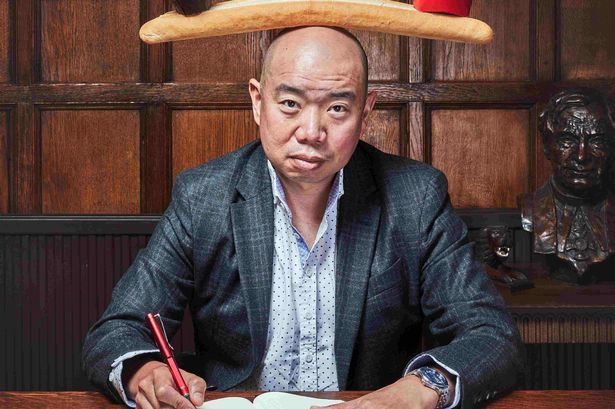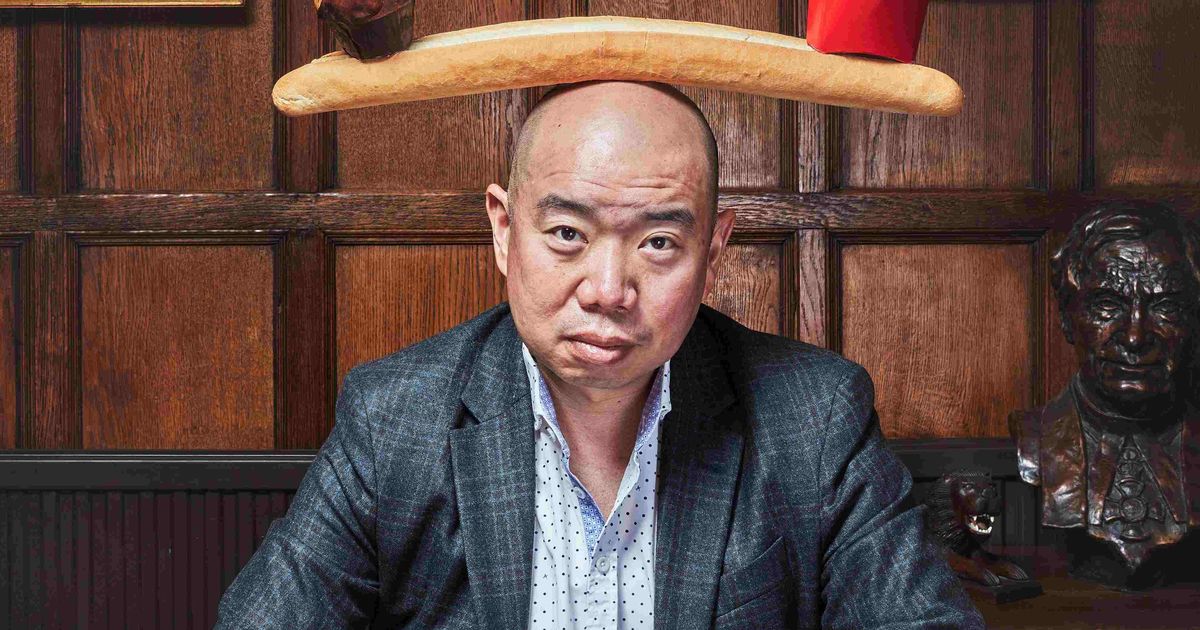Dr Giles Yeo is set to take part in a free event in Liverpool
05:00, 13 Sep 2025Updated 06:59, 13 Sep 2025
 Giles Yeo (pictured) investigates the pros and cons of increasingly popular weight loss jabs
Giles Yeo (pictured) investigates the pros and cons of increasingly popular weight loss jabs
A doctor has shared the three main things people ask him when he discusses weight loss and drugs. Dr Giles Yeo MBE, who is a leading geneticist and professor at the University of Cambridge, is set to take part in a free interactive talk about how new drugs are altering our outlook on obesity.
The expert has appeared on BBC Two’s ‘Trust Me, I’m A Doctor’, The Diary of a CEO with Steven Bartlett and Jay Shetty’s podcast. He has also written books on weight loss including Gene Eating: The Story Of Human Appetite and Why Calories Don’t Count and hosts his own podcast, ‘Dr Giles Yeo Chews The Fat’.
Now, he’ll take part in a talk, which is one of several free British Science Festival events, at 2.30pm today (September 13) at The Black-E in Liverpool city centre. Speaking ahead of the event, Giles told the ECHO: “It’s not just going to be a talk. It’s going to be directed at a wide range of audiences.
“What we’ve done is put together three demonstrations in which we’re going to go through a number of different steps. What are gut hormones? What are hormones? And how we actually control hunger and appetite within our brain? Then we’re going to explain all of that.
“Once we do that we then tackle how the drugs work. You need to understand your gut, the hormones in your gut and what hormones are, how hunger is controlled and how fullness is controlled. The moment we get there, we’ll then talk about how the drugs work.”
He added: “I hope that it’s going to be light, but informative. It should be informative, I would say, for early teens upwards. But it’s going to be good for adults as well. We’ll really go into the biology of it, then we’ll do a Q&A for people to ask their concerns. What are the side effects? Things like that.”
Giles will talk about drugs such as Ozempic and Mounjaro, how they work and whether they’re safe. He stressed that “they are a drug and not a cosmetic tool”, something which will be a focus during the event.
Alongside Jonathan Pettitt of the University of Aberdeen and The Genetics Society, the expert will discuss how the medicines work, why they are so effective and why people in the UK are mostly buying them privately, rather than accessing them through the NHS.
Ahead of the event, Giles shared the three things that people ask when he talks about these drugs. He told the ECHO: “The first is: ‘Should we treat obesity?’ I think that’s a silly question. Should we treat high blood pressure? We never ask those questions. I think obesity is a disease. So yes, I think it should be treated.
“The second thing is people say is that ‘these drugs are a short cut’ and ‘they don’t treat the route cause of obesity.’ A short cut – what does it mean? What these drugs do is change one or two hormone levels in your body.
“By changing one or two, depending on what drug you’re taking, suddenly you feel fuller, then you eat less and you lose weight. These drugs don’t mean you eat what you want and then make you puke it up.
“There’s nothing weird about it. So you can almost consider that these drugs, some people with obesity have a hormonal deficiency that these drugs are fixing. So I don’t think it’s a short cut, I think we’re fixing a deficiency.
“It is true that these drugs do not prevent obesity. They treat obesity. Prevention of obesity still requires us to improve our diets. We need education in schools.
“We need government policies around advertisements, all that stuff. Drugs tend to be designed to treat disease, rather than prevent disease. So use a hammer for a nail, and a screw driver for a screw. We need policies to prevent obesity. But the drugs will help some people with obesity to treat.
“Number three – ‘if you stop the drug the weight will come back on’ – yes. This is absolutely true because as with most drugs the moment you stop taking it, the effects wear off. So high blood pressure, for example. Most of us know someone on high blood pressure medication. When you take the drug, your blood pressure is normalised.
“But when you stop, your blood pressure is now abnormal again. The same thing is going to be true for your weight. It takes a longer time obviously because it’s weight. So the likelihood is that many people who start and are on these drugs will have to be on these drugs for a pretty long time.”
More information on the event can be found on the British Science Festival website.
